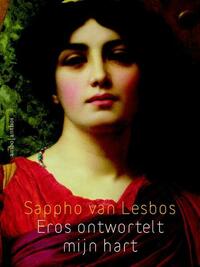Take a photo of a barcode or cover
informative
reflective
fast-paced
challenging
informative
medium-paced
emotional
informative
reflective
fast-paced
i was expecting a full on poems of sapphic from this book, but it was not it. it is completely different from what i was expecting but it was still a good read. as a person intimidated by poems by its format and somewhat contextually dense messages, this book is amazing and i would recommend to people like me. they included contexts, histories, or meanings next to the fragments of poems and it helped a lot to someone like me who isnt into the lore.
Sappho, the woman that you are.
As a sapphic myself, Sappho’s poetry is everything to me. I sat down, read, annotated, and digested this book in one sitting while listening to Hozier. That’s all there is to say really.
I loved you once, years ago, Atthis,
When your flower was in place
You seemed a gawky girl then, artless,
Without grace.
Atthis, you looked at what I was
And hated what you saw
And now, all in a flutter, chase
After Andromeda.
As a sapphic myself, Sappho’s poetry is everything to me. I sat down, read, annotated, and digested this book in one sitting while listening to Hozier. That’s all there is to say really.
But I must suffer further, worthless
As I am…
challenging
emotional
inspiring
reflective
fast-paced
emotional
hopeful
inspiring
reflective
relaxing
sad
slow-paced
not my favorite translations, but still beautiful!
“that impossible predator/ eros the limb-loosener/ bitter-sweetly and afresh,/ savages my flesh.”
"sweet mother, i can't take shuttle in hand. / there is a boy, and lust / has crushed my spirit - just / as gentle aphrodite planned."
"you were at hand, / and i broke down raving - / my craving a fire / that singed my mind, / a brand you quenched."
"some call ships, infantry, or horsemen / the greatest beauty earth can offer; / i say it is whatever a person / most lusts after. ... and i would rather watch her body / sway, her glistening face flash dalliance / than lydian war cars at the ready / and armed battalions."
“that impossible predator/ eros the limb-loosener/ bitter-sweetly and afresh,/ savages my flesh.”
"sweet mother, i can't take shuttle in hand. / there is a boy, and lust / has crushed my spirit - just / as gentle aphrodite planned."
"you were at hand, / and i broke down raving - / my craving a fire / that singed my mind, / a brand you quenched."
"some call ships, infantry, or horsemen / the greatest beauty earth can offer; / i say it is whatever a person / most lusts after. ... and i would rather watch her body / sway, her glistening face flash dalliance / than lydian war cars at the ready / and armed battalions."
Thought I should properly read some Sappho as she's referred to constantly. Am not an expert on classical poetry in general so some of the references went over my head, but otherwise is a good intro to the fragments and the notes and introductory material provide the needed context. The parallels of love and warfare were intriguing. "The people I most strive to please/Do me the worst injuries..." I also enjoyed learning that Sappho invented the plectrum.
Sappho my queen I’ve never read poetry as carefully as hers, timeless and super gay
"Nightingale, / All you sing / Is desire; / You are the crier / Of coming spring."
Sappho defines love as possession, as a ravaging of the flesh caused by divine forces. Divinity which is both great and destructive, represented by Eros and Aphrodite who birth love to feed upon it. Love becomes a carnal hunger for flesh and soul, driven by the desire to tempt, to conquer, to devour.
Her description of love is Homeric and transcendent, rendering love religious. Whether perceived as a ritual of worship or sacrifice, both are distortions of reality. When love becomes fantasy, rejection (and therefore the forceful return to reality) becomes unbearable. The rotten lover contemplates suicide, praying to be rid of their suffering and the object of desire which they have been severed from. However, death prevents the lesson- one cannot learn from past failures when one takes away the eyes to see, the heart to feel.
It is the human determination which allows one to bear pain and therefore accept love knowing it might decay. It is the ability to face the abyss and submit to its temptation.
Love takes courage, love takes sacrifice. Yet both are rewarded with knowledge.
Sappho defines love as possession, as a ravaging of the flesh caused by divine forces. Divinity which is both great and destructive, represented by Eros and Aphrodite who birth love to feed upon it. Love becomes a carnal hunger for flesh and soul, driven by the desire to tempt, to conquer, to devour.
Her description of love is Homeric and transcendent, rendering love religious. Whether perceived as a ritual of worship or sacrifice, both are distortions of reality. When love becomes fantasy, rejection (and therefore the forceful return to reality) becomes unbearable. The rotten lover contemplates suicide, praying to be rid of their suffering and the object of desire which they have been severed from. However, death prevents the lesson- one cannot learn from past failures when one takes away the eyes to see, the heart to feel.
It is the human determination which allows one to bear pain and therefore accept love knowing it might decay. It is the ability to face the abyss and submit to its temptation.
Love takes courage, love takes sacrifice. Yet both are rewarded with knowledge.
Sappho really has such a way with words. This is the first book of her poetry I have ever owned and I’m sure there will be many more. The introduction and notes are able to give some interesting context as well! Will probably reread many times.






